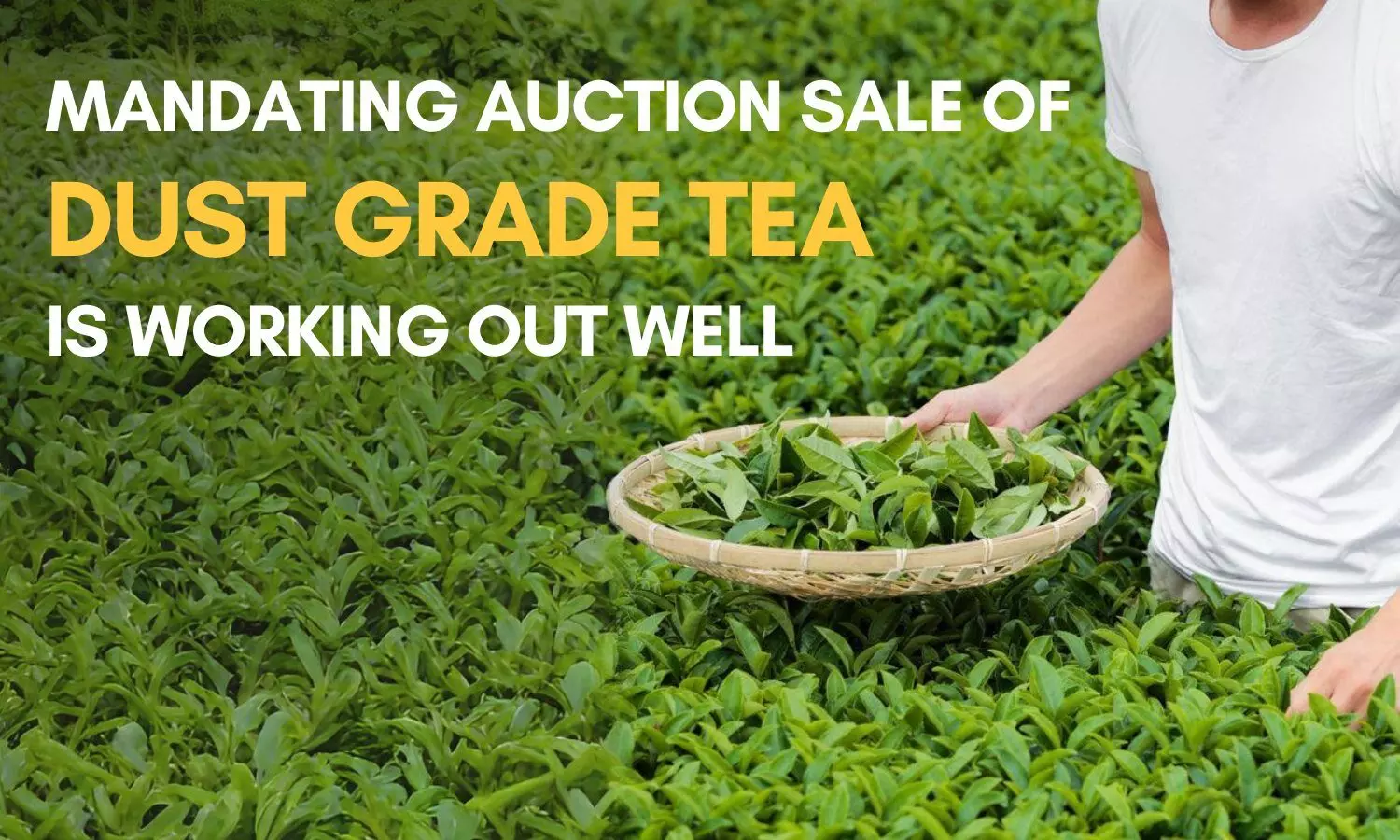Mandating auction sale of dust grade tea is working out well
The Tea Board of India's mandate for auction-only sales aims for better price discovery, impacting Assam's tea industry significantly.
image for illustrative purpose

Sale of dust-grade teas, which are prepared by crushing tea leaves and stems, has seen a jump in auction sales despite price hike this year. Earlier this year the Tea Board of India (TBI) had directed tea manufacturers in 10 states to sell dust grade teas only through the auction process. The effort was aimed at better price discovery for dust grade teas. Interestingly, the Assam government had earlier urged the Centre to consider “deferring” the enforcement of the sale of 100 per cent of dust grades tea through public auction as otherwise it was likely to create significant challenges, inevitably impacting the livelihood of tea growers in the State, where around 10 lakh workers are in direct employment in the tea industry and over 1.25 lakh small tea growers (land holding below 10.12 hectares).
They account for 48 per cent of total green tea leaves produced in the State. According to the North-Eastern Tea Association (NETA), the basic principle of its objection to the mandated 100 per cent auction of dust tea is because the government cannot guarantee price realisation and hence should not intervene and leave it to the producers to sell their produce in whatever manner they feel comfortable.
The TBI decision followed a February 23 directive by the Union Ministry of Commerce and Industry calling for mandatory auction of dust grade teas.
In a subsequent March 8 order, the Tea Board had said, “The Government of India has directed that every registered tea manufacturer in the states of Assam, Arunachal Pradesh, Bihar, Himachal Pradesh, Meghalaya, Mizoram, Nagaland, Sikkim, Tripura, Uttarakhand, and West Bengal shall sell 100 per cent of dust grades of tea through public tea auctions, held under the control of organizer of tea auction licensed to do so under the Tea Marketing Control Order, 2003.” The mandatory auction sales order is only limited to the April-June period, and exempts the mini-tea factories.
The Board had also formed a committee to monitor the auction of dust grade teas. During the period April-May, 7340 metric tonnes of dust-grade tea were sold through the auction process at an average price of Rs. 213 per kg, in comparison to 7160 metric tonne sold in the same period of 2023, at Rs. 190 per kg. The top six buyers together bought 2283 metric tonne of dust grade tea through the auction process, at an average price of Rs. 243 per kg (March-May).
In comparison, the top six buyers of dust grade tea had during March-May 2023 bought 2056 metric tonnes at Rs. 199 per kg. Auction sale 22 in end-May, saw the highest quantity of 1522 metric tonne dust grade tea sold in the auction process this year, compared to 1123 metric tonne in 2023. The average price in sale 22 was Rs. 219 per kg in 2024, compared to Rs. 194 in 2023. Total volume purchased by top six buyers has gone up by 11 per cent compared to the previous year. The main considerations behind the Centre’s move were demand generation, better price discovery, and compliance with Food Safety and Standards Authority of India (FSSAI) norms. As things stand, these seem to be working out well.

